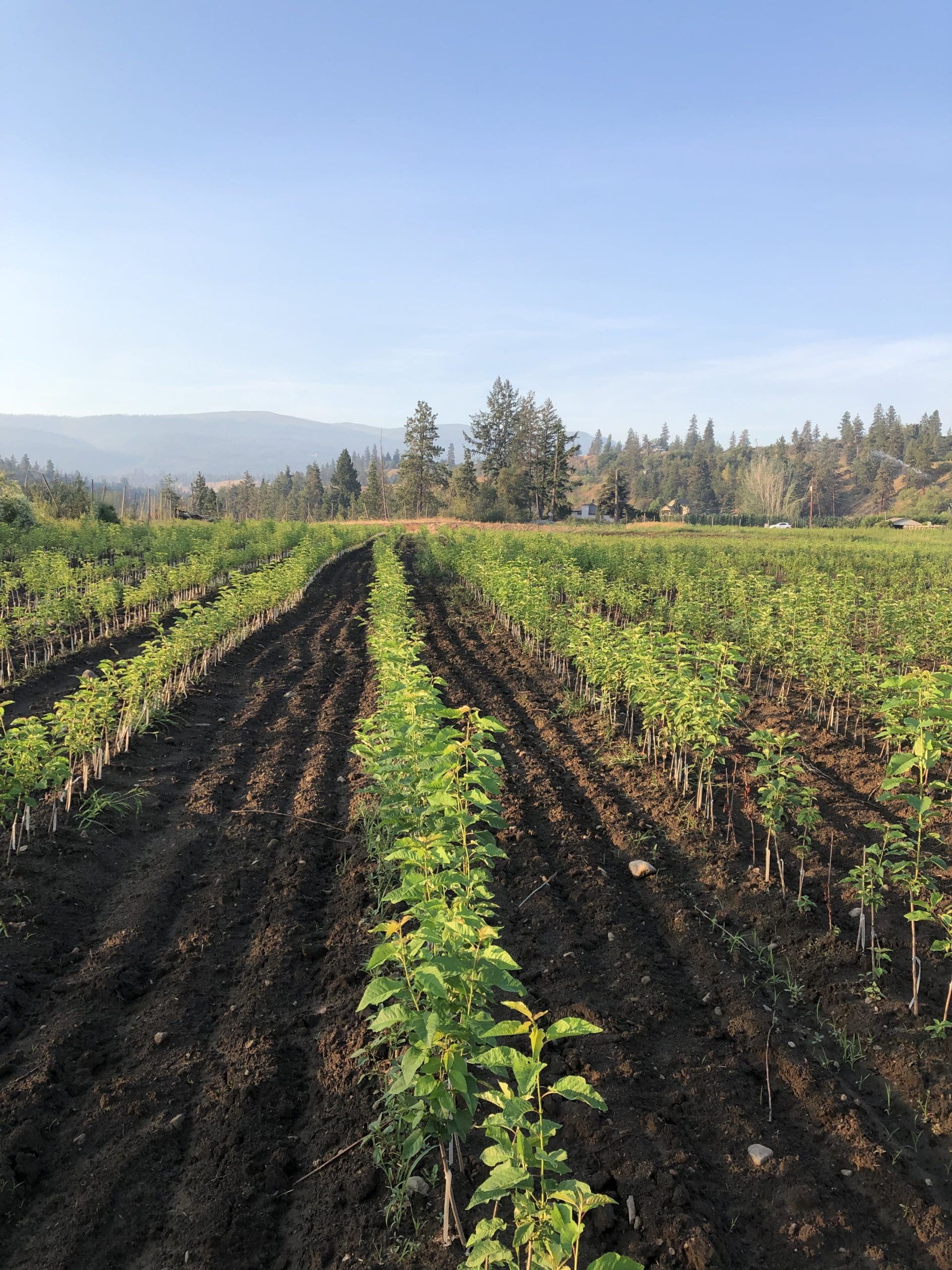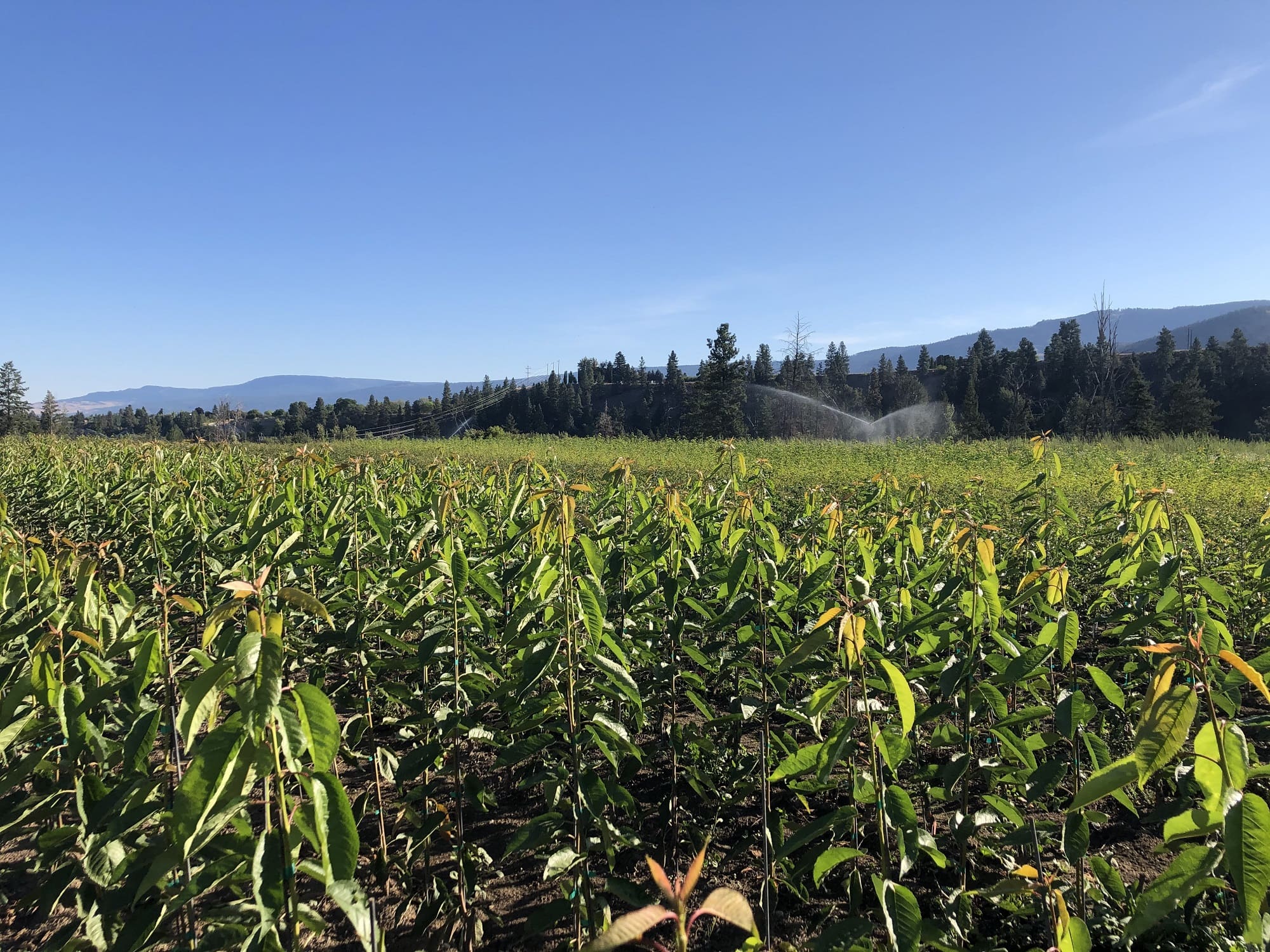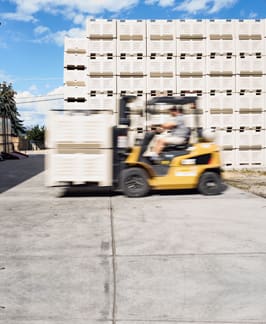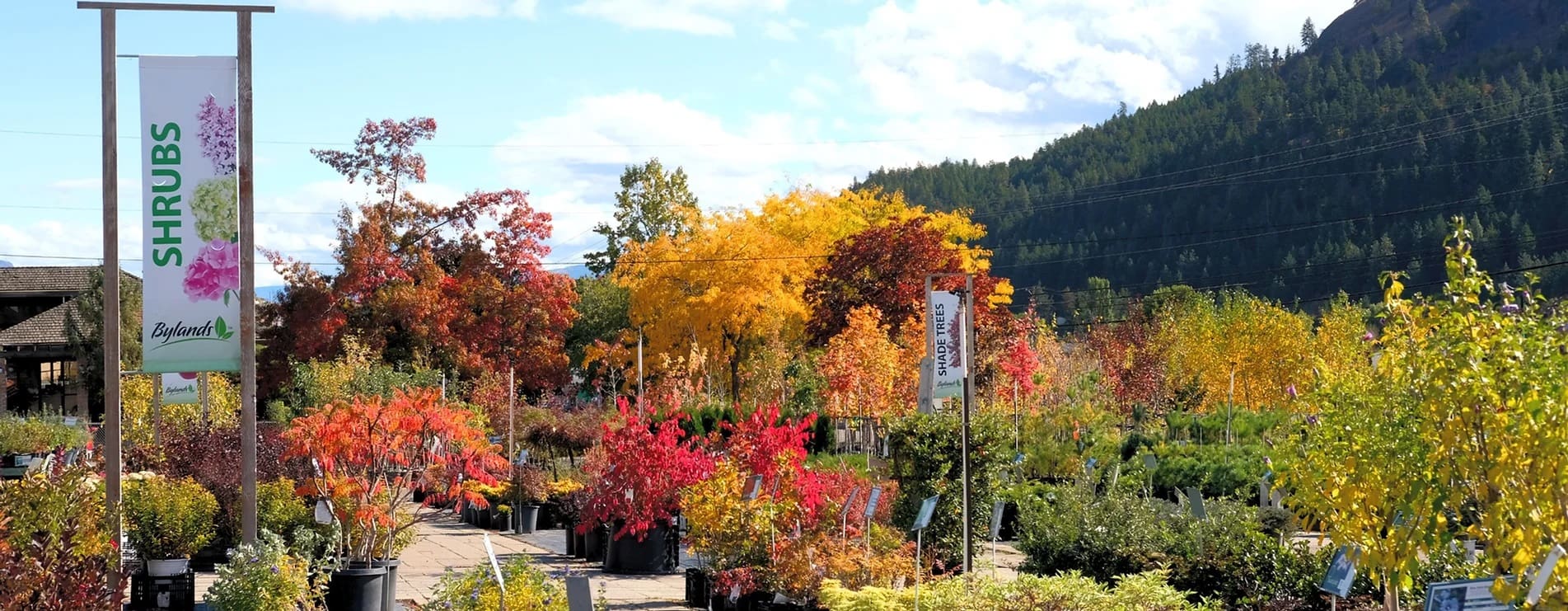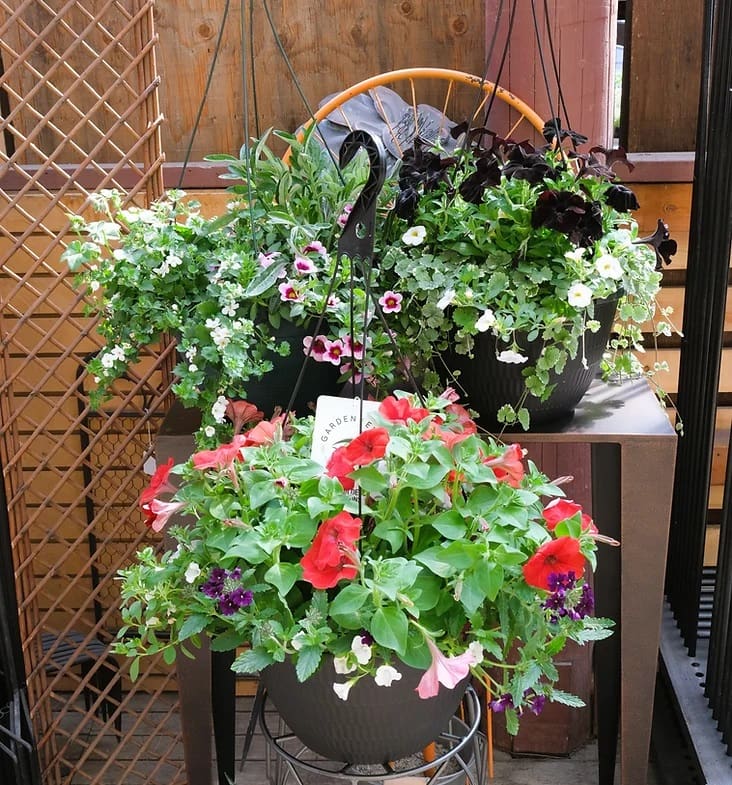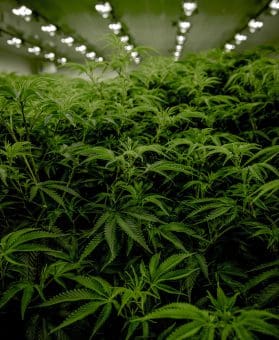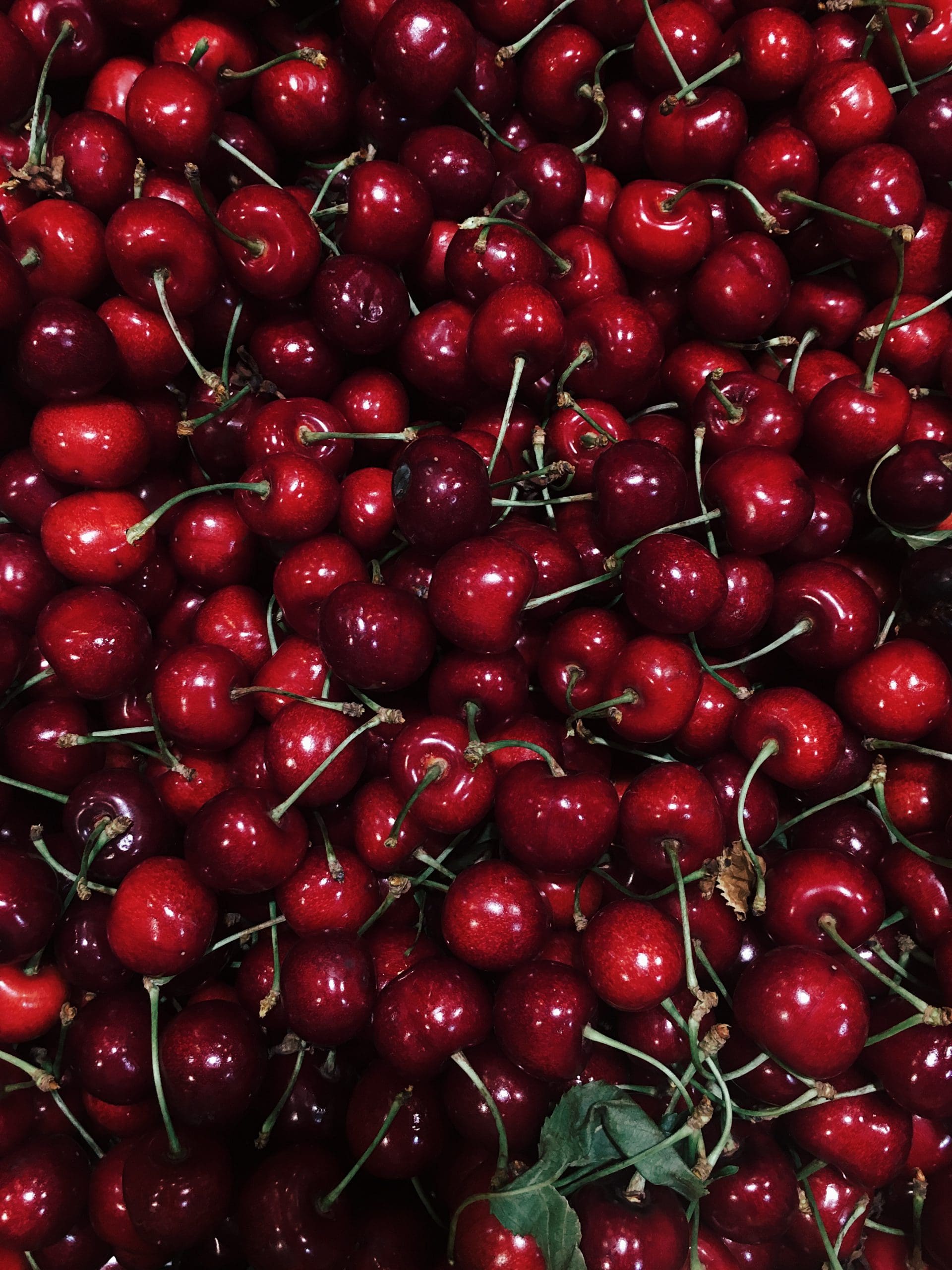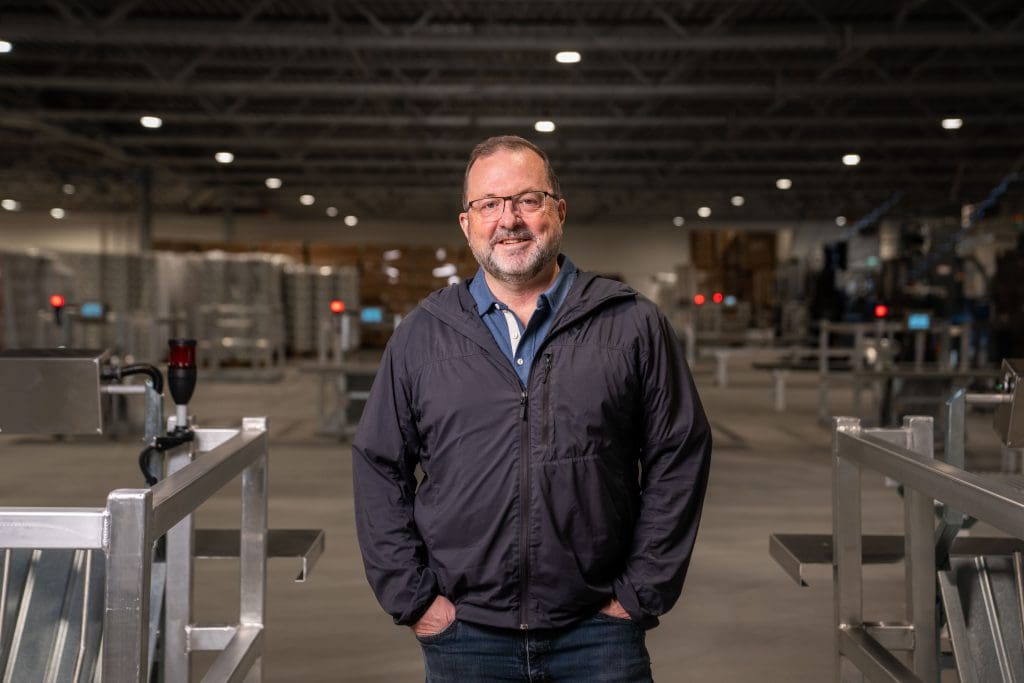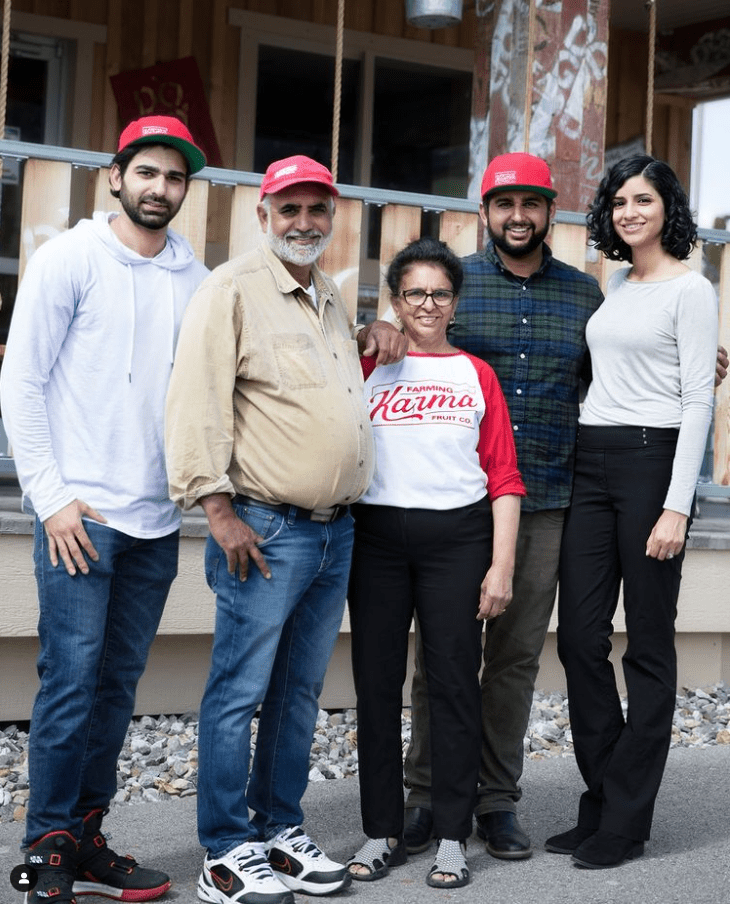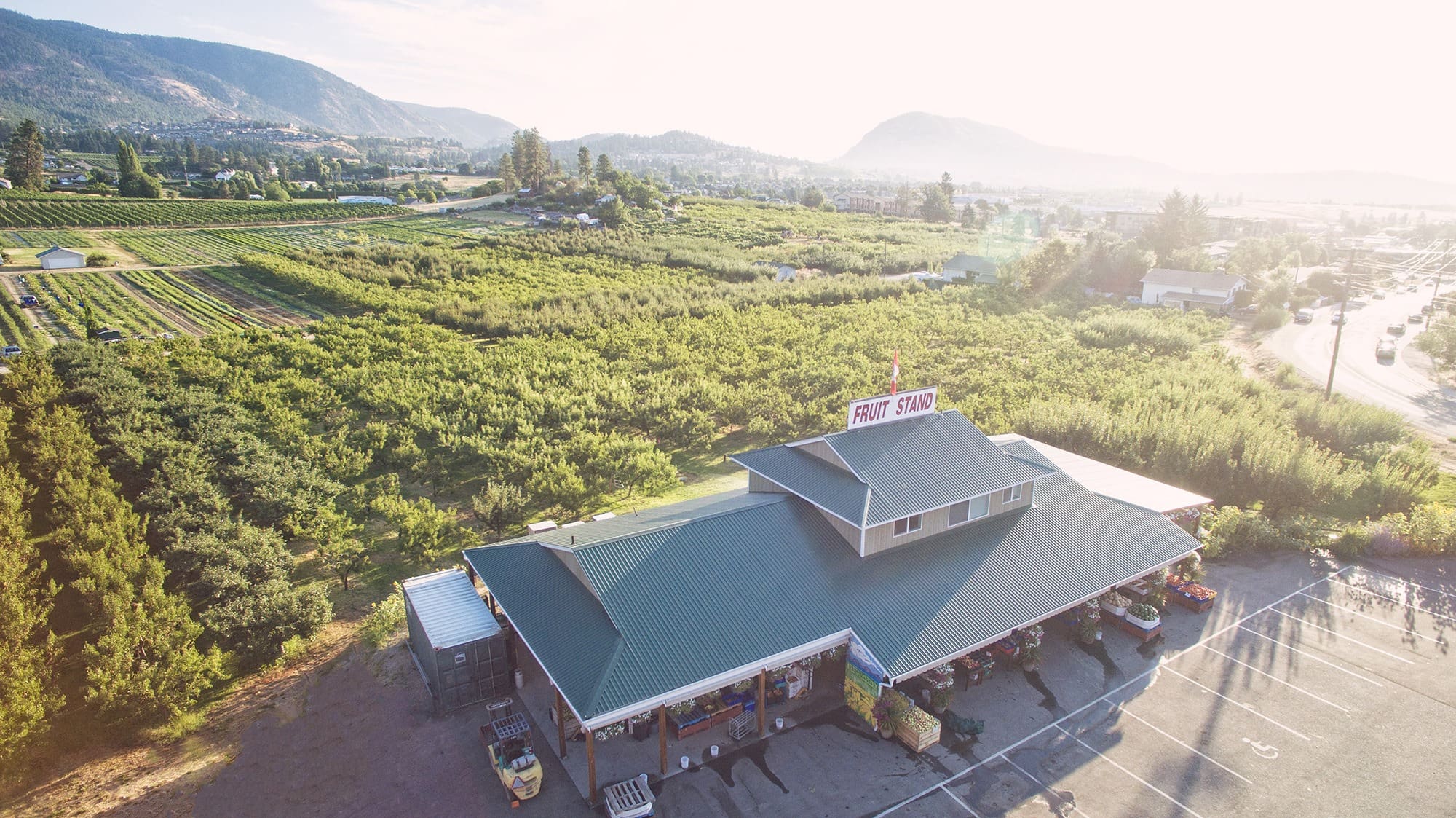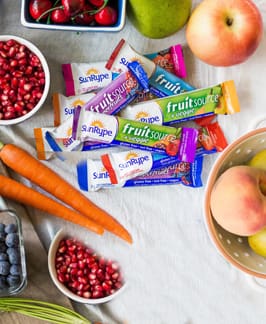James Calissi’s farming roots run deep—his mother’s family grew wine grapes, farmed crops, and raised lamb in Romania, while his father’s family grew wine grapes and olive trees in Tuscany. Close to 80 years ago, after immigrating to Canada, James’ grandparents bought a farm in East Kelowna where they operated an orchard. From there, James’ parents met, purchased their own farm nearby, and continued the family’s legacy, with 4-year-old James along for the adventure.
James’ journey to establishing the current iteration of the farm was many years in the making. He studied horticulture at UBC, completed a Masters of Agricultural Economics, then worked for the government and consulted for many years, even after he and his wife purchased the farm from his parents. While the land was an orchard for decades, with a small nursery for the family’s own use, James eventually converted the property to a fully operational plant nursery.
“We sold some trees to orchardists and eventually added rootstock sales,” explains James. “I was involved with the commercialization of new varieties from the research station in Summerland and commercialized the Ambrosia apple while working for Okanagan Plant Improvement Company. I enjoyed the work and had many connections worldwide, so I eventually started my own global commercialization company [Calissi Farms].”
Through its work with the University of Guelph’s breeding materials, which started in 2010, Calissi Farms ships new cherry varieties to nurseries around the world, where they are propagated as test trees, grown for several years, and assessed to determine the marketability of the fruit they produce.
Along with managing the cherries bred at the University of Guelph, Calissi Farms also provides rootstock and finished trees to orchardists throughout the Okanagan, Similkameen, and Creston regions. Most recently, the farm has added cherries from the University of Bologna in Italy and new rootstock from Germany. They’ve also signed propagation agreements for cherry varieties in the US and New Zealand.
In addition to his work, James also serves on the Central Okanagan Economic Development Commission’s Advisory Committee, where he has the opportunity to connect with business owners in other sectors, learning about how they operate and what strategies they use for success, which he can then consider for his operations.
Kelowna’s post-secondary institutions—which offer a pool of people to draw from when the time comes for him to hire—are among the many regional amenities that James appreciates. He notes that travel from the Central Okanagan is “quite convenient” thanks to the Kelowna International Airport, which allows him to connect with the airports in Vancouver, Calgary, and Toronto.
“Kelowna is a nice-sized city, and we anticipate continuing our nursery here,” says James. “I expect to evolve the brand development of the new varieties that we commercialize.”
With two generations of orchardists behind James and fourth-generation family members working alongside him to operate the nursery, there’s no doubt Calissi Farms will continue to bring new fruit to life, evolve its work, and seek out innovative opportunities for many more years to come.
